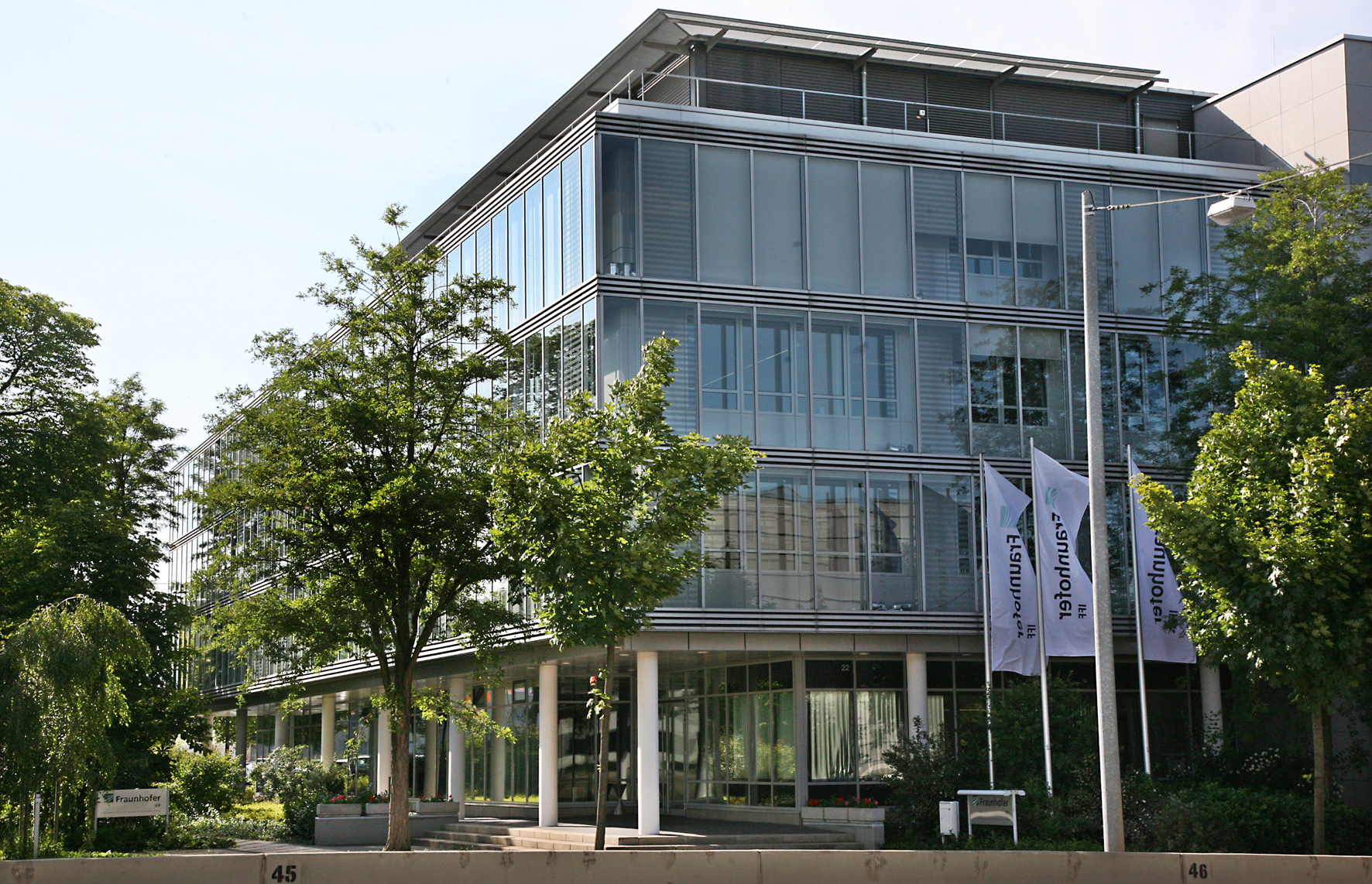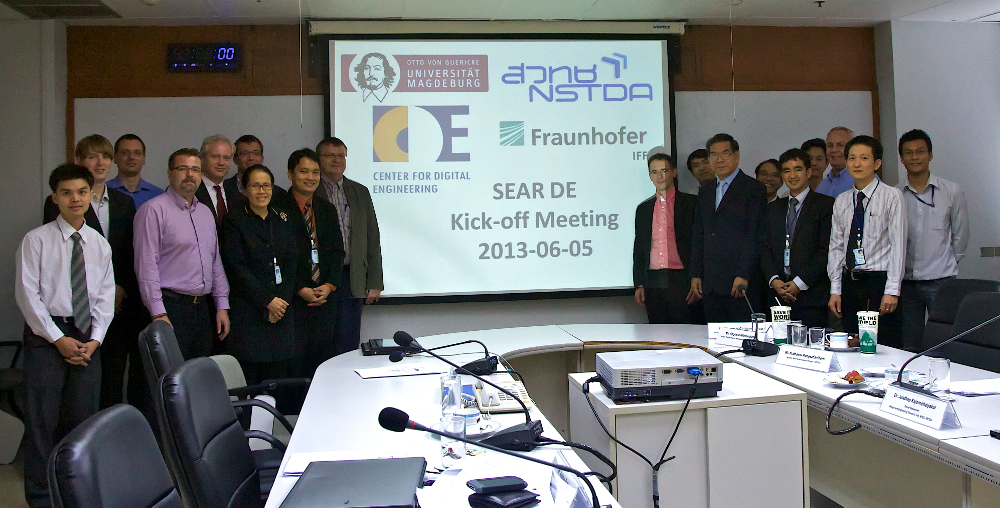
Otto von Guericke University Magdeburg (OvGU) was founded in 1993 and is one of Germany’s newest universities. It was formed by a merger of the existing Technical University, the Teacher Training College and the Medical School.
The University now comprises 9 faculties and almost 14.000 students and is becoming increasingly important as a center for education and research. It plays an important role in the regional capital of Magdeburg, which is developing into a center for business, scholarship and culture.
The University is a member of many organizations and committees.
The University is named after Otto von Guericke (1602-1686), Magdeburg's famous son, whose pioneering research into the vacuum brought him renown well beyond Germany’s borders. The University aspires to teach and research in the tradition of this great scientist, philosopher and engineer and to continue with his humanist work.
At the University of Magdeburg students can choose from 79 degree courses in various areas of study and specialization. Added to these is a range post-graduate courses. There are also many possibilities to combine different subjects across the faculties. The conditions for students are ideal, with modern laboratories, experimental workshops and clinics equipped with high-performance computers and an excellent staff-student ratio. The offer of a sound, thorough education combining a high level of theoretical expertise with practical experience makes Magdeburg an attractive choice. Magdeburg also attracts students because it can offer single and twin-bedded accommodation in its halls of residence.
In recent years research at the University has gone through a decisive change from applied to innovative fundamental research. Among the many areas represented, the neurosciences, immunology, non-linear systems, new materials, processes and products, computational visualistics, social transformation and communication and culture deserve a special mention. The University hopes to make a significant contribution to economic and social development in Magdeburg and the surrounding area through its research. Equally, more recently established disciplines such as the humanities, economics and management have already made their mark on our research profile.
Affiliated institutes and the University's Technology Transfer Centre act as links between academia and industry. They facilitate businesses' access to the University's research resources while simultaneously promoting innovation.
The University's Medical School, which is located in the south of Magdeburg, is the second of the University's sites. It provides a base for 1,300 trainee medics as well as health care for the citizens of Saxony-Anhalt. As a full-service hospital, the University Clinic Magdeburg can provide treatment for a broad range of serious and complex complaints. It has 1,100 beds and is the largest hospital in the Magdeburg area. It handles as many as 45,000 in-patients annually as well as countless out-patients. In recent years the Medical School’s various clinics and centers have focused increasingly on specialized patient care.
Special emphasis is placed on close cooperation between teaching staff and students.
Tasks
In the SEAR DE project, the OvGU undertake the following tasks:
Project coordination
The OvGU is responsible to communicate project relevant information to the project partner, IFF and NSTDA. If possible, on-site meetings are organized. Otherwise, the communications between the project partners are realized directly via emails, voice communication, or video conferencing.
Organization and participation of scientific events related to Digital Engineering
Within the SEAR DE project, several events, such as seminars, workshops, summer schools etc., related to Digital Engineering will be realized. The OvGU will participate in these events to provide a scientific background to the topic Digital engineering and to provide current research results or perspectives. Together with the project partners, the OvGU will organize an international Southeast Asia Symposium on Digital Engineering to advertise the principles of Digital Engineering in Southeast Asia.
For the project partners, the OvGU organizes information and training events in order to provide ideas and opportunities to implement the principles of Digital Engineering within the Thai universities, industry and government.

The Fraunhofer IFF specializes in research of digital engineering methods and systems in the product life cycle – from product design to the planning and implementation of their manufacture through training and qualification. This includes methods and systems that employ virtual engineering and virtual and augmented reality to design complex products, facilities, and production systems, especially in the sectors of machinery and plant manufacturing.
The Fraunhofer IFF ASEAN Regional Office in Bangkok, Thailand has been operating as a regional research and development hub for know-how and technology transfer projects in Southeast Asia since 2008. When involved as a research partner, the Fraunhofer IFF contributes beneficial technological expertise, knowledge of local markets, regional expertise, and access to established local research, academic, governmental and private sector networks and facilitates the successful completion of projects.

The National Science and Technology Development Agency (NSTDA) is Thailand’s largest national organization for science and technology (S&T) and is attached to the Ministry of Science and Technology (MOST) Thailand. It was founded in 1991 and, with over 2,600 employees and an annual budget of over 4 billion baht, is one of the leading S&T centers in Southeast Asia. The NSTDA clusters its research activities in four national technology Centers:
When establishing its specializations, NSTDA defined specific “Target Research Clusters”, which serve as the basis for pursuing national research and development as well as technology transfer. What is more, it launched an integrative digital engineering program to link the respective platform technology groups.



cedemo - center for digital engineering, management and operations
Universitätsplatz 2
Otto-von-Guericke-Universität Magdeburg
39106 Magdeburg
Tel.: 0391/67-57007
Fax: 0391/67-12810
Mail: info@cedemo.de